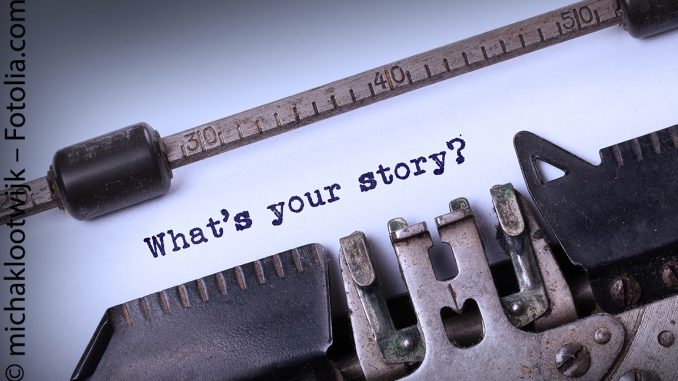
None of us would call oneself a liar. We claim to be telling the truth. But do we really know this truth? We all have vested interests, perspectives and values which coin our very own view on things and facts. Accordingly, there could be many truths – or none.
Let’s take a current topic: The inheritance tax in Germany. The German Federal Constitutional Court has obliged the government to reform this tax. Political discussions and debates are taking place in the media.
Different Truths
Let’s take a look at the various possible truths regarding the issue: If I am myself affected by this tax, my own interests will probably greatly determine my own view on the topic. My value system (aimed at justice, civic mentality, and political orientation) can intensify or mitigate my views. Discussions in the media can influence me. In view of time and costs, I will of course limit my research to just a few media and select those from the available multitude that will confirm my own views.
In addition, we often selectively absorb data or arguments used by the media to inform us, preferring the information confirming our opinion. We are therefore not objective and from our own viewpoint, we will conclude what we believe to be right, for example: “This tax is unjust, because the testator already paid tax for the inheritance when he made the income.” We want to assert our viewpoint as the general legal concept, we want to be right. But our opinion is often only spread in the non-public and private environment.
Politicians [1] are representatives of interests. They are bound by programs that reflect the values of the voters’ groups targeted by their parties. Politicians seek the public to attract voters. They use every moment to spread their own and/or their party’s views. Polemics, rhetoric and a pinpointed media appearance are proven means to this end. A politician exercises objectivity only in private or non-public discussions. They seek majorities by conviction, not by arguments, to shape reality according to their ideas.
A tax advisor may base his personal view on science-based knowledge – after all, he underwent scientific studies before practicing his professional activities. But as a tax advisor, he will be on his client’s side. He will represent the particular interests and the value system of his clients and he will use his qualifications and expertise for this end. And even if he held views of the tax system that were different from those of his clients, he would not allow them to influence his advisory work. His fees are paid at least in part according to his clients’ success.
Representatives of the media work differently. Of course, there are huge differences in quality, for example with regard to the funding of national and international research, the capacity of editorial staffs, their expertise and the training and experience of its members. In addition, there are media with ideological commitment or huge editorial dependency from private owners or with substantial “yellow” orientation. They all exist alongside each other and with some effort in own research, each informed person can put together a reasonable selection from the relative media diversity that suits one’s taste.
The Media as the Fourth Estate and Opinion Makers
In a democratic system, the independent media landscape, free of all governmental influence, is considered as the fourth estate in addition to the legislative, executive and the judiciary estates. It must be possible to criticize the political system from every perspective and all angles of the democratically and legally admissible bandwidth in the context of the freedom of speech. The intention is that violations of good practice in the political system should do a minimum of damage once exposed to the public.
In contrast to the position above, the journalist does not primarily act as a representative of vested interests, but as someone who shapes opinions. His working methods are based on investigation, and his accuracy and diligence show in his selection and use of sources. Good journalists will not report any news coming from only one source that is impossible to clearly evaluate and is not confirmed by another source and if so, only under reservation.
Because it’s appropriate, distinction is made within a medium between the various editorial departments and, within the editorial staff between various categories such as publishing facts, comments, editorial articles, features, ironical comments etc. In most cases, diversity of opinion on controversial topics is represented by reproducing the most diversified positions. It is of course the objective of the private media’s opinion shaping to integrate facts into a position that is acceptable to the editorial staff, all in an attempt to provide information, to entertain and to convince. The public and statutory media, however, are controlled by representatives of the “socially relevant groups”. Therefore, they will apply neutrality in their reporting and allow political and societal positions to represent themselves by corresponding discussions or statements (talk shows, specific research articles etc.).
Then, how will a German leading medium treat the heritage tax issue? Probably by reporting facts (sentence of the German Federal Constitutional Court, description of the present system, investigation of the tax revenue, positions of the involved political parties), publishing interviews with stakeholders, politicians, tax experts and scientists to represent the specter of opinion authentically and – of course – by commenting, for example in the politics section, in editorials and in the economics section.
High-quality media will in most cases avoid presenting an issue in a one-sided manner. Instead, they will prove their quality by trying to consider and reflect on all arguments, describing all the various viewpoints and interests. In this manner, they can ultimately analyze the decision with the greatest possible impartiality, providing their users a contribution for thorough opinion shaping. They want to be reliable, they want to be proven correct in the long run to bind and retain their targeted user groups. They thus try, although being bound by their values, to generate as much transparency of reality as possible. However, we also have quite obscure business practices within the media sector.
All swans are white?
Scientists have in common with journalists that their work is based on research and investigation. But there are also many differences: They doubt altogether if there is such a thing as truth or knowledge. Is it really possible to know the truth about reality by rational thinking alone? Today, the majority doubts that. Can it be perceived by the senses? This is confirmed to a large extent.
But not to the extent that a scientific theory about any reality will be considered as true, merely because various empirical surveys have only yielded facts confirming it. It is considered tentatively correct as long as it has not been proven false. Even if only white swans had been discovered so far, the hypothesis “all swans are white” could not be considered as true, because with the next test, a black swan might be discovered. And this did indeed happen in reality (please see the illustration of the Cygnus atratus, also referred to as black swan).
If I – as a scientist – want to create knowledge, I must abstain as far as possible from all prejudices, values and personal opinions. In contrast to the media, where diversity of opinion and interests should be expressed, in my role as a scientist in the search for knowledge I must proceed with utmost objectivity. Because it is improbable that anyone – as an individual – can claim absolute truth for himself, inter-subjectivity must be established: Tentative truth will be established only once a community of people with adequate intellectual competence arrives at the same conclusions – at least in principle – after verification of facts.
This leads to the requirement that tentative results must be published in a medium that is not directed to a general audience but to the scientific community of a scientific field; and this in a language that wants to neither judge nor convince. In this context, publications will be made only once they have been verified and found competent by a team of expert editors with regard to content and style in application of double blind tests. This in turn means that scientific investigation, as opposed to journalistic research, must be based almost exclusively on scientific sources with regard to presenting the state of the art and further developing the respective scientific field.
Of course, there is a certain diversity of theories and approaches in the scientific universe as well. It is not without reason when we speak about the “majority” view when trying to describe the prevailing opinion. Therefore, scientific research must have a much larger breadth and width in source evaluation than an article of a daily paper or a blog article. The objective of generating new knowledge in combination with my personal integrity of course dictates the distinction between new and old knowledge, demanding to ensure transparency with regard to the used sources by means of a source list and correct quoting.
A Funny Cakewalk
Following that, academic writing is a funny cakewalk. All that needs to be done is compiling a network of precise definitions, logical phrases and verified figures at an elevated linguistic level: Based on thorough investigation and deducted, for example, from financial theory on national tax regulations, a description can be outlined on the taxation objectives and principles that are presently applicable in Germany and, in view of this, the evaluation of the heritage tax; in addition, a list of the criticisms of the current system plus alternative options is compiled, alternatives from other countries are investigated, followed by comparison. Then come an evaluation of the tax volume, weighing the effects of the different suggestions against each other and reflecting on the loopholes for tax evasion. This is, finally, rounded off by evaluating possible variants (including elimination) according to cost and benefits in a comparing overview.
This is how knowledge is generated. And it is worthwhile to acquire and preserve the necessary methods.
- Academic Writing (Part 2): Research
- Academic Writing (Part 3): Scientific Language
- Academic Writing (Patz 4): Plagiarism
[1] This always refers to both genders. For reasons of legibility, we waive explicit reference to both genders.






